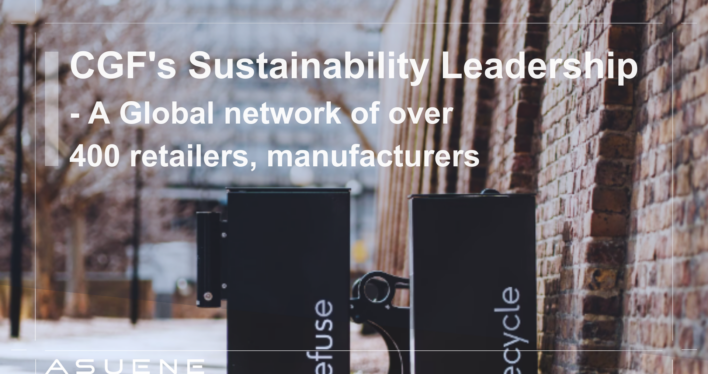- Article Summary
-
Background: Consumer Goods and Their Climate Footprint
The consumer goods sector touches nearly every household on the planet—spanning food and beverage, personal care, household products, apparel, and more. This ubiquity comes at a cost: the sector accounts for a significant share of global greenhouse gas emissions, much of which occurs upstream in complex, international supply chains.
In response, the Consumer Goods Forum (CGF)—a CEO-led global network of over 400 retailers, manufacturers, and service providers—has emerged as a key platform to align business leadership on sustainability. A major component of CGF’s climate ambition is its alignment with the United Nations-backed Race to Zero campaign, which aims to mobilize net-zero commitments across all sectors of the global economy.

Purpose: Aligning Corporate Climate Goals with 1.5°C
CGF members that join Race to Zero commit to achieving net-zero emissions by 2050 at the latest, with interim goals for 2030. These targets must be science-based, credible, and publicly disclosed.
Table: Race to Zero Requirements for CGF Members
| Commitment Pillar | Description |
|---|---|
| Pledge | Publicly commit to reach net-zero GHGs by 2050 |
| Plan | Develop a clear roadmap with 2030 targets aligned to 1.5°C |
| Proceed | Take immediate action across Scopes 1, 2, and 3 |
| Publish | Disclose progress annually via CDP, TCFD, or other transparency tools |
These commitments are particularly crucial for consumer goods companies, whose Scope 3 emissions—especially from agriculture, packaging, and logistics—often represent over 80 percent of their carbon footprint.
Mechanisms: From Pledges to Real Emission Reductions
CGF leverages industry-specific working groups, partnerships, and tools to help members implement their climate commitments.
Science-Based Targets and Supplier Engagement
Members are encouraged to set targets via the Science Based Targets initiative (SBTi) and engage with suppliers through platforms like CDP Supply Chain and the Supplier Leadership on Climate Transition (Supplier LoCT).
Value Chain Decarbonization
CGF supports best practices in regenerative agriculture, sustainable packaging, clean transport, and circular product design.
Policy and Market Collaboration
CGF advocates for carbon pricing, climate-aligned trade policy, and a just transition for workers across the value chain.

Current Status: Sectoral Participation and Progress
As of 2024, over 200 CGF member companies have joined Race to Zero. However, participation rates vary by sector and region.
Race to Zero Participation by Sector (CGF, 2023)
| Sector | Members Joined (2023) | 2030 Target | Examples of Members |
|---|---|---|---|
| Food & Beverage | 70 | 120 | Nestlé, PepsiCo, Danone |
| Retail | 50 | 100 | Walmart, Carrefour, Ahold Delhaize |
| Personal Care | 40 | 90 | Unilever, L’Oréal, Procter & Gamble |
| Logistics | 30 | 80 | DHL, Maersk, FedEx |
| Apparel | 25 | 70 | H&M, Nike, Levi Strauss |
Outlook: Opportunities and Challenges for the Decade Ahead
Race to Zero offers a unified platform for credible climate action, but turning pledges into results remains the key challenge.
Key Trends (2025–2035):
- Growing investor pressure through ESG indices and climate disclosure standards
- Increased regulatory mandates (e.g., EU CSRD, U.S. SEC climate rules)
- Scaling regenerative practices and low-carbon logistics at speed
- Digital product passports and traceable carbon labeling
Bar Chart: Sectoral Participation in Race to Zero
The blue-themed chart above shows current and target participation by sector among CGF members.
What Consumer Goods Companies Should Do Now
| Action Area | Strategic Recommendations |
|---|---|
| Set Science-Based Targets | Use SBTi to align with 1.5°C pathway and validate goals |
| Measure Scope 3 Emissions | Collect granular data from suppliers and logistics partners |
| Engage Suppliers | Provide tools, incentives, and training to decarbonize operations |
| Shift to Green Logistics | Transition fleets to electric/alternative fuels, optimize routes |
| Increase Transparency | Disclose annually through CDP, TCFD, or CRREM |
Conclusion: From Climate Commitments to Climate Results
Through the Race to Zero, the Consumer Goods Forum is demonstrating how business leadership can be a force for climate ambition. But with most emissions occurring far beyond company walls, true progress will require a systemic transformation of supply chains, energy use, and product lifecycles.
The next decade will be a defining one for the consumer goods sector. Those who invest early in decarbonization will not only manage risks but unlock competitive advantage and build consumer trust in a low-carbon economy.
Why Work with ASUENE Inc.?
Asuene is a key player in carbon accounting, offering a comprehensive platform that measures, reduces, and reports emissions, including Scope 1-3, with expertise in decarbonization. Asuene serves over 10,000 clients worldwide, providing an all-in-one solution that integrates GHG accounting, ESG supply chain management, a Carbon Credit exchange platform, and third-party verification.
ASUENE supports companies in achieving net-zero goals through advanced technology, consulting services, and an extensive network.


